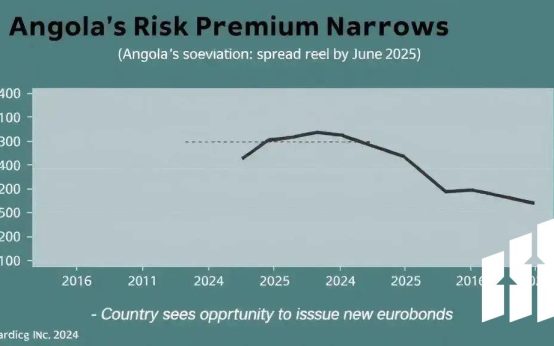How to cut expenses without sacrificing quality of life involves tracking spending habits, prioritizing essentials, finding affordable alternatives, using smart saving strategies, and maintaining a flexible budget that supports well-being and enjoyment.
Looking for ways on how to cut expenses without sacrificing quality of life? It might sound tricky, but saving money doesn’t have to mean giving up what you enjoy. Ever wondered how some manage to live well on less? Let’s explore it together.
understanding your spending habits
Understanding your spending habits is the first step toward cutting expenses without feeling deprived. Start by tracking every purchase for at least two weeks using an app or a simple notebook. This helps reveal patterns and areas where money might be leaking without much benefit.
Analyze Your Spending Categories
Break down your expenses into categories like groceries, dining out, entertainment, and subscriptions. Notice which areas consume most of your budget and ask yourself if each expense aligns with your priorities or adds real value to your life.
Identify Unnecessary or Impulse Purchases
Often, small impulse buys or recurring charges go unnoticed. Recognize these expenses by reviewing your spending history and consider which ones can be reduced or eliminated without lowering your quality of life.
Set Realistic Spending Limits
Using the insight from your spending habits, set reasonable budgets for each category. This helps create control and awareness while preventing overspending, ensuring your savings goals stay on track.
prioritizing essential expenses

Prioritizing essential expenses means focusing your budget on the things that truly matter. Start by making a list of your fixed costs, like rent or mortgage, utilities, and food. These are the non-negotiable items that keep your life stable and comfortable.
Distinguish Needs from Wants
Needs are essentials like housing, food, and healthcare, while wants include dining out, entertainment, and luxury items. By identifying these clearly, you can allocate funds wisely and reduce spending in less critical areas without feeling deprived.
Emergency Funds and Debt Payments
Include building an emergency fund and paying down debts in your essential expenses. These steps improve your financial security over time and prevent larger problems from unexpected costs.
Adjusting Lifestyle Without Sacrifice
Sometimes shifting priorities means minimizing expensive habits, like daily coffee runs, and replacing them with more affordable options. This does not mean cutting happiness, but finding smarter ways to enjoy your lifestyle.
finding affordable alternatives without losing value
Finding affordable alternatives doesn’t mean settling for less quality. It’s about being smart and exploring options that offer great value at a lower cost. Start by comparing brands and seeking out sales, discounts, and coupons to save on everyday items.
Consider Secondhand and Refurbished Items
Buying gently used or refurbished products can significantly reduce expenses without sacrificing quality. Many items, like electronics or furniture, can be found in excellent condition at a fraction of the original price.
Use Subscription Services Wisely
Subscription services for essentials or entertainment can sometimes be more cost-effective. Analyze your usage patterns to choose plans that meet your needs without unnecessary extras.
Explore DIY and Homemade Solutions
For certain needs like cleaning supplies and home meals, making your own can save money and ensure quality. Simple recipes and DIY projects often use natural ingredients and avoid costly additives.
smart saving strategies that don’t feel like sacrifice

Smart saving strategies focus on making cuts without feeling like you’re giving up too much. One effective approach is automating your savings so money moves to your savings account before you even notice it. This reduces temptation and builds your fund steadily.
Use Cashback and Rewards Programs
Taking advantage of cashback offers and rewards on everyday purchases can help you save money without changing your lifestyle. Look for programs that fit your spending habits to maximize benefits.
Create Fun and Affordable Alternatives
Instead of cutting out entertainment completely, find less expensive ways to have fun, such as home movie nights or free community events. These choices maintain your quality of life while trimming expenses.
Practice Mindful Spending
Mindful spending means being conscious of every purchase and asking if it adds value to your life. This habit helps avoid impulse buys and promotes a healthier relationship with money.
maintaining quality of life while budgeting
Maintaining quality of life while budgeting means finding a balance where you control spending without feeling stressed or limited. Start by identifying what brings you joy and comfort, and make sure your budget reflects those priorities.
Plan for Small Rewards
Including small treats or experiences in your budget can keep morale high and reduce feelings of sacrifice. These planned rewards make saving more enjoyable and sustainable.
Focus on Health and Well-being
Investing in your health, like buying nutritious food and staying active, supports long-term happiness and can prevent costly health issues later. Budgeting for wellness is essential.
Create a Flexible Budget
Allow some wiggle room in your budget for unexpected expenses or spontaneous activities. A flexible budget helps you adapt without guilt or financial setbacks.
Taking control of your finances without losing comfort
Cutting expenses doesn’t have to mean giving up the things you love. By understanding your spending habits, prioritizing essentials, and finding affordable alternatives, you can save money while keeping your quality of life.
Smart saving strategies and a flexible budget make managing finances easier and less stressful. Remember, mindful spending and small rewards keep your motivation strong.
With these tips, you can enjoy financial peace of mind and a good lifestyle at the same time.
FAQ – How to cut expenses without sacrificing quality of life
How can I start tracking my spending habits effectively?
Begin by recording every purchase you make for at least two weeks using a budgeting app or a simple notebook. This will give you a clear picture of where your money goes.
What are essential expenses I should prioritize?
Essential expenses include rent or mortgage, utilities, groceries, healthcare, and debt payments. These keep your life stable and should be covered first in your budget.
Are there ways to save money without losing quality?
Yes, consider buying secondhand or refurbished items, looking for discounts and coupons, and exploring DIY options that maintain quality but cost less.
How do smart saving strategies make budgeting easier?
Smart strategies like automating savings and using cashback programs help you save consistently without feeling like you are sacrificing your lifestyle.
Can I maintain my quality of life while budgeting?
Absolutely. By planning small rewards, focusing on health, and creating a flexible budget, you can control spending while still enjoying life fully.
What is mindful spending and why is it important?
Mindful spending means being aware of every purchase and whether it adds value to your life. It helps avoid impulsive buying and supports better money management.


 ADP Launches Weekly Payroll Reports to Revamp Labor Market Insights
ADP Launches Weekly Payroll Reports to Revamp Labor Market Insights  US Consumer Confidence Falls Amid Gloomy Economic Outlook
US Consumer Confidence Falls Amid Gloomy Economic Outlook  Miran Highlights Dual Goals of Fed and Interest Rate Outlook
Miran Highlights Dual Goals of Fed and Interest Rate Outlook  Are You a Robot? Unusual Activity Detected on Bloomberg
Are You a Robot? Unusual Activity Detected on Bloomberg  Keir Starmer Leads Business Delegation to India for Trade Pact
Keir Starmer Leads Business Delegation to India for Trade Pact  Takaichi Appoints Ex-Finance Minister as Secretary General of LDP
Takaichi Appoints Ex-Finance Minister as Secretary General of LDP